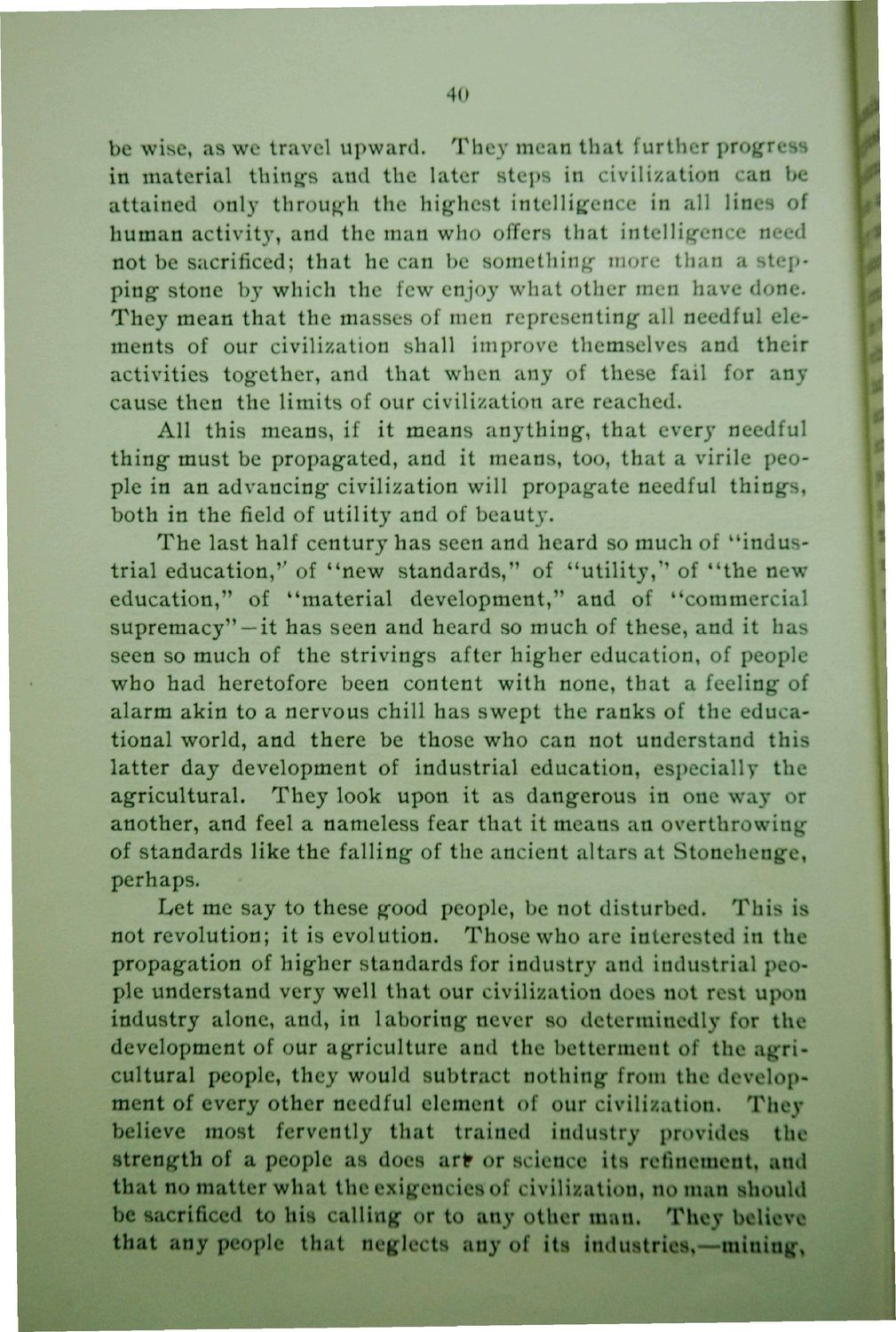| |
| |
Caption: Dedication - Ag Building
This is a reduced-resolution page image for fast online browsing.

EXTRACTED TEXT FROM PAGE:
40 be wise, as we travel upward. They mean that further progress in material thing's and the later steps in civilization can be attained only through the highest intelligence in all lines of human activity, and the man who offers that intelligence need not be sacrificed; that he can be something more than a step* ping stone by which the few enjoy what other men have done* They mean that the masses of men representing all needful elements of our civilization shall improve themselves and their activities together, and that when any of these fail for any cause then the limits of our civilization are reached. All this means, if it means anything, that every needful thing must be propagated, and it means, too, that a virile people in an advancing civilization will propagate needful things, both in the field of utility and of beauty. The last half century has seen and heard so much of "industrial education," of "new standards," of "utility," of "the new education/' of "material development," and of "commercial supremacy"—it has seen and heard so much of these, and it has seen so much of the strivings after higher education, of people who had heretofore been content with none, that a feeling of alarm akin to a nervous chill has swept the ranks of the educational world, and there be those who can not understand this latter day development of industrial education, especially the agricultural. They look upon it as dangerous in one way or another, and feel a nameless fear that it means an overthrowing of standards like the falling of the ancient altars at Stonehenge, perhaps. Let me say to these good people, be not disturbed. This is not revolution; it is evolution. Those who are interested in the propagation of higher standards for industry and industrial people understand very well that our civilization does not rest upon industry alone, and, in laboring never so determinedly for the development of our agriculture and the betterment of the agricultural people, they would subtract nothing from the develop* ment of every other needful element of our civilization. They believe most fervently that trained industry provides the strength of a people as does a r t or science its refinement, and that no matter what the exigencies of civilization, no man should be sacrificed to his calling or to any other man. They believe that any people that neglects any of its industries,—mining.
| |